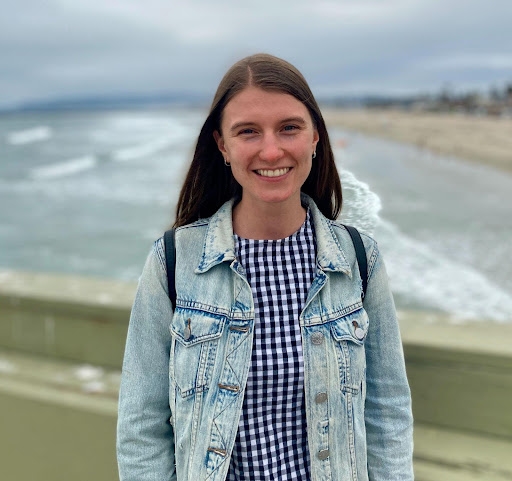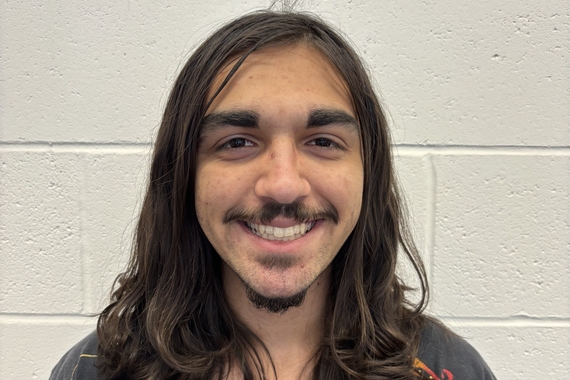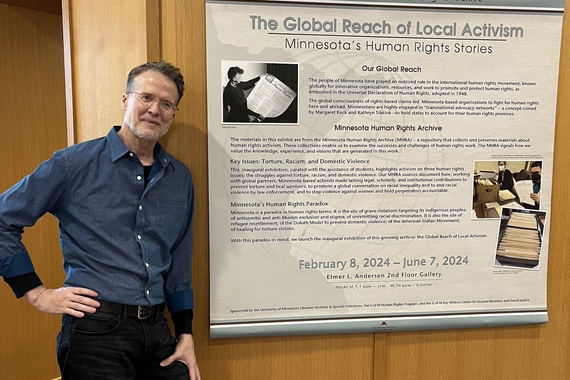Advocating for migrant rights and engaging with vulnerable groups on immigration reform in Mexico
The Human Rights Program strongly believes in the importance of integrating professional experience with academic knowledge in the field of human rights, making internships one of the main requirements of the program. Many students, despite challenges posed by the spread of COVID-19 and challenges related to working in the field defending human rights, succeeded in doing amazing work with their host organizations. In this Q&A series, we interview our students to learn more about their experiences. In the second Q&A of the series, we are joined by Zoe Martens, a second-year Master of Human Rights (MHR) student.
Human Rights Program (HRP): Can you tell us more about your educational background, specifically at the University of Minnesota and your professional experience? How did both contribute to your decision in choosing this particular internship and the host organization?
Zoe Martens (ZM): At the Humphrey School, my concentration in the Masters of Human Rights (MHR) is Migration. My experiences before entering Humphrey led me to this concentration and to my desire to critically assess US migration policies using a human rights lens. Working on the Southern border of Mexico at La 72 migrant shelter in 2019 led me to identify patterns and similarities between Mexican and US immigration enforcement and the systemic ways people are denied access to migration and asylum across both countries. This experience inspired me to continue to explore the binational relationship between the US and Mexico, and US exportation of migration policies to Mexico and Central America in particular.
I chose my internship with el Instituto para las Mujeres en la Migración (IMUMI-Institute for Women in Migration), as an opportunity to work with a civil society organization engaged in migration issues in Mexico, with a binational lens. I was also excited by IMUMI’s focus on gender and other facets of identity in their work advocating for just migration policies in the Americas. Finally, I was very interested in working on a project related to ending the use of immigration detention.
HRP: Please describe your summer internship, the host organization, your role in that organization, and the projects you worked on?
ZM: IMUMI is a civil society organization based in Mexico City, that works in direct legalrepresentation for migrants and asylum seekers in Mexico, supports transnational families that have been deported to Mexico after living in the US, advocates for policy change, sensitizes and trains public officials with regards to migration issues and researches migration in the region. I did my internship remotely from Minneapolis. I worked with the team focused on children and adolescents in migration to investigate and measure the impacts of a 2020 legal reform in Mexico, prohibiting the immigration detention of migrant children and adolescents in the country. The reform was a significant step forward, after years of advocacy from civil society. However, getting legal reform on the books is just the first step.
I created a methodology to measure the implementation of the legal reforms in practice, focusing on the Southern border of Mexico, made up of the states of Chiapas and Tabasco. I interviewed members of civil society working with children and adolescent migrants in that region and wrote and managed information requests to institutions in the Mexican government. This second process was the equivalent of a Freedom of Information Request Act in the US. I interpreted the patterns and findings from my research through the lens of the binational relationship between the US and Mexico, and the challenges in implementing the reforms emanating from restrictionist immigration policies in the US and the use of Mexico to deter migrants before they enter the US.
HRP: How did the internship add to your professional experience and personal growth? And how do you see it impact your career trajectory?
ZM: My internship gave me a lot of freedom and creativity to address the challenge of analyzing the implementation of Mexico’s legal reform. I had the opportunity to create the methodology, do the investigation, and write the final report. I appreciated the ability to take a critical stance on the reform’s implementation, an opportunity that I would not have been afforded in a governmental institution. My experience leads me to think I will continue to work in civil society, rather than government, to advocate for policy change. I also will continue to seek out organizations that have a transnational perspective on immigration policy that allow us to take into account historical relationships of power between the US and other countries.
HRP: Doing your internship remotely due to Covid-19 and with an organization that is based in Mexico, where access to data for academic research may prove difficult, can be very challenging. What were the main challenges you faced during your internship on both a personal and a professional level? And how did you overcome them?
ZM: There were aspects of the internship which were challenging, especially being remote. It was harder to build relationships with the people I worked with, since communication revolved around Zoom and WhatsApp and there was less built-in time to get to know each other as people, rather than just coworkers. I also didn’t have many opportunities to get to know staff from other departments within the organization. However, IMUMI set up weekly virtual gatherings for interns, volunteers, and students working with the organization, and we were able to get to know each other a bit and learn from different IMUMI staff members.
It was also challenging to get quality information from the information requests to Mexican institutions. That process in particular presented various roadblocks, from responses that evaded the question to technology issues with the online platform to request information. I was able to work with the lawyer on our team to appeal responses that were not complete, and I also used qualitative data from the interviews to supplement data gained from the information requests. I continued my internship into the fall in order to get more responses to the information requests, and though at the end of the project, I still did not have all the data I set out to collect, I was able to find striking patterns pointing to the lack of implementation of the reform in Southern Mexico.
HRP: The Trump Administration’s migration policies had significant setbacks for migrants and asylum seekers in the US, and also Migrant’s Rights advocates. Based on your experience, What are your recommendations for the current administration in order to deal with Trump's legacy?
ZM: My work with IMUMI was certainly informed by US policy, both under Trump and Biden. The Migrant Protection Protocols and Title 42, both instituted under Trump, continue to block the transit of migrants and asylum seekers, presenting challenges for IMUMI’s legal representation and policy advocacy work. At the beginning of my internship, Vice President Kamala Harris was preparing for her visit to Mexico and Central America, and I collaborated on a letter for her visit. However, she did not meet with migration-focused NGOs in Mexico, and the message resulting from her visit to address the root causes of migration was narrowly deterrence-focused.
Based on my experience this summer, my immediate recommendation would be that the Biden administration rescind Title 42, a policy that is currently denying people their internationally protected right to seek asylum (see a Human Rights Watch letter urging Biden to rescind this policy, signed by IMUMI and many other organizations). This is only a first step to respecting people’s rights to movement, but would certainly make an immediate difference. Larger questions loom, such as US use of Mexico as a buffer country to deter migrants and the use of detention throughout the region in the civil realm of immigration
HRP: What are your recommendations for other students who are interested in pursuing a career in the migration rights field?
ZM: For other students interested in working in migration rights, I would recommend that they seek out internships with smaller migration-focused NGOs. Though large NGOs also do great work and would provide a valuable learning experience, I found that working with a smaller organization who deeply understands the current realities in their region was very rewarding.



